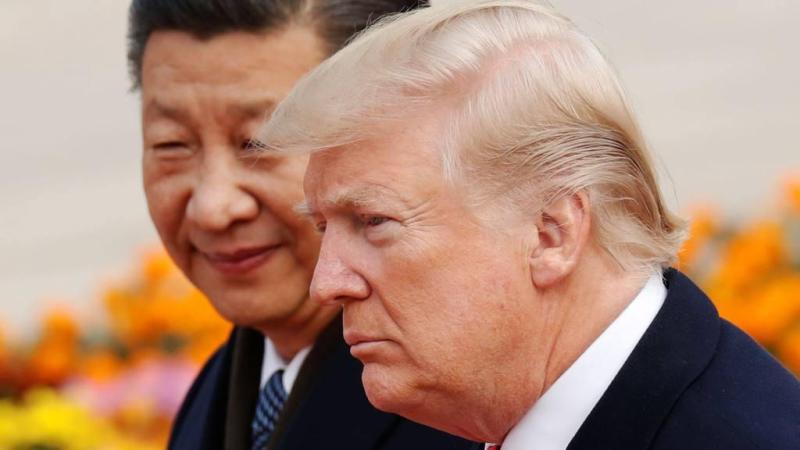US President Donald Trump has said that he is considering signing the first phase of the long-awaited trade deal with China in Iowa.
Trump and Chinese President Xi Jinping were expected to ink the agreement at the Asia Pacific Economic Cooperation summit in Santiago, Chile in mid-November. But host Chile announced on Wednesday that it was cancelling the event due to ongoing mass demonstrations.
“We’re moving along with the deal with China. China wants to make the deal very much and we have a good relationship and we’ll see what happens. I don’t like to talk about deals until they happen, but we’re making a lot of progress,” Trump told reporters on the South lawns of the White House.
He was responding to a question on the status of the US-China trade deal. “I’m looking at a different couple of locations. Could even be in Iowa…What we are discussing the location — but I like to get deals done first,” he said.
Earlier in the day, Trump’s economic advisor Larry Kudlow said that the negotiations with China on a trade deal are going quite well.
According to Kudlow, negotiations on agriculture chapter is about closed now. This will not only increase Chinese purchases of American farm products from USD40 to USD 50 billion, but also open up the Chinese agricultural markets, the lowering of regulations and standards and non-tariff barriers.
Farmers have been hit hard by the trade war. Trump has been trying to assure them that they will come out ahead in the end. “The financial services chapters virtually done. It’s going to give 100 per cent ownership to American companies in China, securities firms, insurance, investment, and so forth,” he said.
“The currency chapter is virtually done for stability rather than any manipulation. Excellent progress on the intellectual theft problem, the intellectual property theft problem, so-called IP chapter. It’s not completed, but very good progress on that,” he said.
According to Kudlow, the issues related to tech transfer have made some progress but would probably be taken up in phase two. “The deal is not completed, but we’ve made enormous progress. We are beyond where we were last spring. So I’m going to play that from the optimistic side,” he said, adding that Trump is looking at signing the deal with his Chinese counterpart Xi and they are now looking for a venue.
Since last year when Trump launched a trade war with China, the US and China have imposed slapped tariffs on USD 360 billion in two-way trade.
The US has imposed tariffs on USD 250 billion of Chinese goods, having accused the country of unfair trade practices. Beijing hit back with duties on USD 110 billion of US goods, blaming the US for starting “the largest trade war in economic history”.
Trade talks between the world’s largest economies started last November. But after more than a dozen rounds of talks in both Beijing and Washington DC, the talks have not yielded any desired result. As per the initial decision taken by Trump and Xi last November, the two countries were scheduled to arrive at a deal in 100 days.
Top Chinese and US trade negotiators have “reached consensus on principles”, China’s commerce ministry announced in a statement Saturday. Chinese Vice Premier Liu He spoke by phone with US Trade Representative Robert Lighthizer and Treasury Secretary Mnuchin on Friday, and “conducted serious and constructive discussions on properly addressing their core concerns and reached consensus on principles,” the ministry said.
Additionally, “the two sides discussed the next consultations,” the ministry said, without providing further detail.
Uncertainty has swirled over the potential US-China trade deal since the cancellation earlier this week of the APEC summit in Chile, where US President Donald Trump said that he expected a “phase one” trade deal with Beijing to be signed after an 18-month trade impasse between the two economic giants.
But Chile’s President Sebastian Pinera announced Wednesday that his country could no longer host the event, due to violent unrest in the city. China and the US have exchanged blows for over a year, with tariffs now impacting hundreds of billions of dollars in two-way trade. Now with the 2020 presidential election approaching, and Trump under pressure from the impeachment inquiry in Congress, US trade officials have focused on getting a partial deal in the books.
